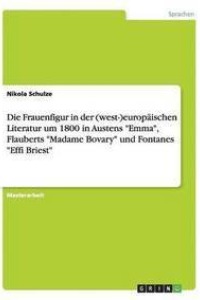
Liknande böcker
Caught between two worlds. Identity in Leslie Marmon Silko's Ceremony
Bok av Daniel Schroeder
Seminar paper from the year 2012 in the subject English Language and Literature Studies - Literature, grade: 3,0, University of Rostock (Institut fr Anglistik/Amerikanistik), course: Worldly and Imaginary Spaces in American Transcultural Literature, language: English, abstract: In our life everybody asks himself: Who am I? The answers to that question generate everyone's self-perception which will be always part of one's identity. The latter is one of the major themes appealing in Leslie Marmon Silko's "Ceremony" and this seminar paper will focus on the two characters Tayo and Rocky. They show the problems occurring for persons that are "caught between two worlds". Tayo feels ashamed of himself because of his white ancestry. His cousin Rocky, on the other hand, is a full-blood Indian, but does everything to be a part of the "white world". Both are somehow caught in the middle because of living in-between.
The first part of the paper will focus on demonstrating the development of these two major characters in Ceremony. It is an important section because "[in] essence, the individual's actions and character define his identity" (Jenlink & Townes 2009: 127). Therefore, to analyze Tayo's and Rocky's identity or search for it, one has to examine their life career and relations with other persons because "[...] a person's identity is [also] influenced by others recognition of that identity [...]" (Jenlink & Townes 2009: 127).
This seminar paper will also focus on the similarities and distinctions between the two mentioned characters and the topic identity including the associated term hybridity, for example. The reasons for the accurate analysis of Tayo's and Rocky's characteristics by comparison are their different philosophy of life and searching for identity. Living in a reservation unfolds a unique way of life which differs from the lifestyle of the White's. Therefore, it creates further hurdles for Tayo and Rocky, but "[this] search for identity [...] is a social as we
Visa pris inkl. frakt Inkl. frakt
Caught Between Two Worlds. Identity in Leslie Marmon Silko's Ceremony
148 kr
Finns i lager
Caught Between Two Worlds. Identity in Leslie Marmon Silko's Ceremony
165 kr
Finns i lager
Caught between two worlds. Identity in Leslie Marmon Silko's Ceremony
229 kr
Finns i lager







